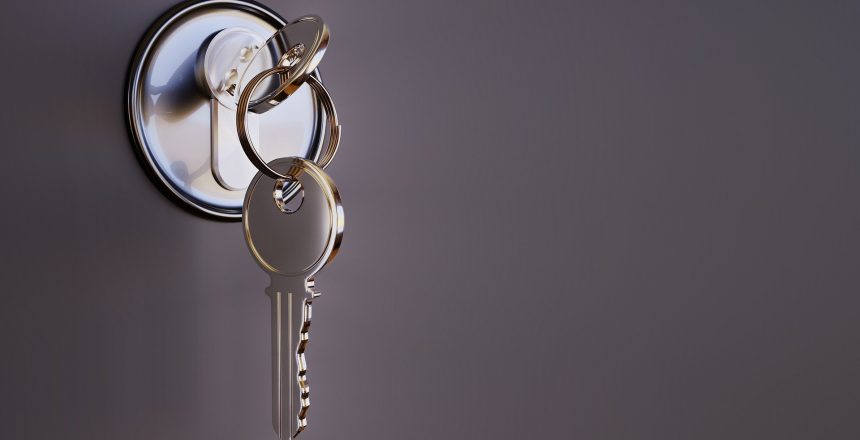Discovering how to keep your flat secure is not only prudent but can be the key to much-needed peace of mind. While flats are generally more secure than houses as they’re typically harder to access, it’s important not to become complacent. Strangers are all too often welcomed into residential buildings by polite neighbours unsuspectingly ‘buzzing’ them in or holding the main door open as they walk through.
Of course, ground floor and basement flats pose an even greater security risk, as criminals can are provided with easily accessible windows. In fact, research by LV= found that ground floor and basement flats are 48% more likely to be broken into than any other type of property. Whereas semi-detached houses and upper-floor flats are the least likely to burgled.[1]
Statistics show that over 60% of burglaries are via insecure properties with burglars gaining access to homes via open windows and unlocked doors.[2] Thus, it is crucial that you focus on securing these areas. However, there are a number of other things that you can do to increase the security of your flat. Therefore, we’re going to take you through our top 10 methods of keeping your flat secure, to help put your mind at rest.
- Window security
As highlighted above, it’s critical to ensure that your windows are secure, particularly if they can be accessed easily from outside. Most windows have built-in locks with keys but many of us fail to even turn that key, and if we do, we often leave the keys in the locks. These actions make it easy for burglars to either open the windows or smash through the glass and turn the key in order to gain access to your property. Therefore, it is important to remember to not only lock the windows but to take the key out of the lock and put it somewhere safe, that cannot be seen or grabbed from the window. However, it is imperative that you put the key somewhere close to the window in case you need to open it in an emergency.
Another great tip is to keep curtains and blinds closed when possible to prevent burglars targeting your flat after spotting something inside that takes their fancy.
- Door security
To gain access to your flat, you will typically need to pass through a main door to the building. This door should already have security measures in place such as a key fob or key code entry system, however, when someone moves out of the building, it is crucial that these keycodes be changed, and any key fobs retained. It is prudent to change these keycodes periodically to prevent savvy criminals from manipulating such a security system.
The security of the main door to the building, or any common doors, such as the back doors/side doors, etc are the responsibility of the freeholder. If any of the doors to the building are in poor condition or lack security, you should contact your freeholder or managing agent to raise the issue. Conversely, the security of the front door to your flat and any patio/balcony doors, etc are your responsibility.
To keep your doors secure, install deadbolts and chain locks, reinforce the joints of the doors and consider changing the locks if you have recently moved in so that you know who has keys to your flat. If the door itself isn’t very sturdy, you may be better off replacing it with one at least 44cm thick. Sliding patio doors will benefit from security bars that prevent the door from being opened should the lock be picked. Similarly, door jammers, which work like heavy-duty door stops, can be used on your front door to prevent it from being opened.
- Get to know your neighbours
One of the great benefits of living in a flat is the number of neighbours close by. Not only can they make wonderful friends, but they can also be a great asset for helping to keep your flat secure. As such, they can listen out for strange noises, keep an eye out for unfamiliar people in your building or near your flat, and alert either you or the police if something is amiss. And if you all work together on this, it will greatly enhance the general security of your building.
Although it may seem unkind or rude, it’s best not to let anyone inside the building unless you know who they are. If they wish to access a particular property, they should request access from the flat owner/resident. Again, it will be much more effective if all neighbours work together on this to help protect your properties.
- Keep outbuildings secure
Similar to communal entrances, all outbuildings, bin stores, garages, bike stores, etc should be closed and locked after each use. This will not only help to protect the contents but should prevent trespassers from loitering, which can result in anti-social behaviour.
- Utilise camera technology
Cameras, which were once only useful after a burglary had taken place, can now alert you via your mobile phone when something is happening in your home. These devices, known as ‘smart cameras’ enable you to check in on your home whenever you need some peace of mind. ‘Ring’ doorbells, which have a camera installed, can also be very useful. They use motion detection to start the video so that you can see who is at your front door. These clever doorbells also benefit from two-way talk and night vision, so you’ll never have to answer the door to someone that you don’t know.
- Keep boundaries visible
If your building has a CCTV system installed to the exterior, it is important to ensure that the cameras are not obstructed so that the property’s boundaries are visible. Therefore, if you notice that trees or shrubs etc are blocking cameras, it is important that you notify your freeholder or managing agent to take care of the issue. Having a visible CCTV system can also be a great deterrent for criminals, so, you may wish to speak to the person responsible for your building to have a system installed. Of course, this will be at the expense of the leaseholders.
- Install a burglar alarm
There are several types of burglar alarms available, each offering a different action for when the alarm goes off:
- Bells-only alarms – make a loud noise when triggered but will not contact anyone
- Dialler burglar alarms – automatically dial your phone number or a telephone number of your choosing (friend, family, etc).
- Smart home-security systems – contact you and anyone else of your choosing through a smartphone or tablet app.
- Alarms with a monitoring contract – a company contacts the police when the alarm goes off in return for a monthly fee.
Each of these alarms will help to prevent you from becoming a victim of burglary, you just need to decide on the level of protection that you require.
- Be discreet about your whereabouts
Although it can be tempting to share on social media what you’re up to when you’re out and about, you could be providing criminals with the perfect opportunity to enter your home. Therefore, it’s wise to be discreet about when you’re not going to be in, particularly if your social media accounts are public.
- Invest in a safe
Keeping your valuable possessions in a good quality safe can provide some protection against theft. They’re not easy to access and can be difficult to remove, particularly if they’re bolted to the wall or floor.
- Purchase contents insurance
No matter what precautions you take, sometimes they can just be futile at preventing a determined burglar. So, if the worst happens, having contents insurance should enable you to replace most of what was stolen. It’s important to purchase an insurance policy that will provide you with enough cover to replace your possessions. Therefore, it’s wise to shop around and consider a range of policies until you find one that is suitable for your requirements. You may also find it advantageous to take photos of all your valuable possessions such as jewellery, so that they can be more easily replaced by the insurance company or even recovered by the police.
Final thoughts
In the year ending December 2019, there were a reported 366,718 burglaries in England and Wales.[3] While this figure seems high, it’s actually 7% lower than 2018, so we can only hope that this trend continues. Nevertheless, by implementing some or all of the 10 tips that we’ve provided for how to keep your flat secure, it will undoubtedly help to protect your home from being burgled and maybe even your neighbours’ homes too. One final tip is to put a note on or near your front door to remind you of the security actions that you should take before you leave your home. And to finish off, we’ve provided some really useful information and advice below from the Metropolitan Police regarding burglaries and protecting your home.
How burglars operate and how to prevent yourself from becoming a victim
- Burglars target homes that they think will contain valuables. A sure giveaway is leaving packaging from expensive items outside your front door.
- Burglars often look for homes with windows or doors left open or with vulnerable features that they can exploit.
- Burglars are aware of the times when someone is expected to be away from their house such as during the school run or holidays.
- Burglars typically do not want to be seen or heard and if they feel that they would be noticed by a neighbour or passer-by then they are more likely to feel exposed and may move on to find somewhere else to burgle.
- Sheds and garages are often vulnerable as they are not that secure and contain tools that the burglar can use to assist them to gain entry to a home.
- It’s a fact that many burglars return to homes that they’ve previously burgled because the homeowner failed to upgrade security following the first burglary. They sometimes return to an area to try to burgle a nearby home that they spotted while committing a previous break-in.
[1] Moneywise.co.uk https://www.moneywise.co.uk/news/2013-11-01%E2%80%8C%E2%80%8C/most-burglaries-happen-november#:~:text=Research%20by%20LV%3D%20found%20that,the%20least%20likely%20to%20burgled.
[2] Cumbria Police https://www.cumbria.police.uk/Advice-Centre/Crime-Prevention/Home-Security.aspx
[3] Office for National Statistics https://www.ons.gov.uk/peoplepopulationandcommunity/crimeandjustice/bulletins/crimeinenglandandwales/yearendingdecember2019


